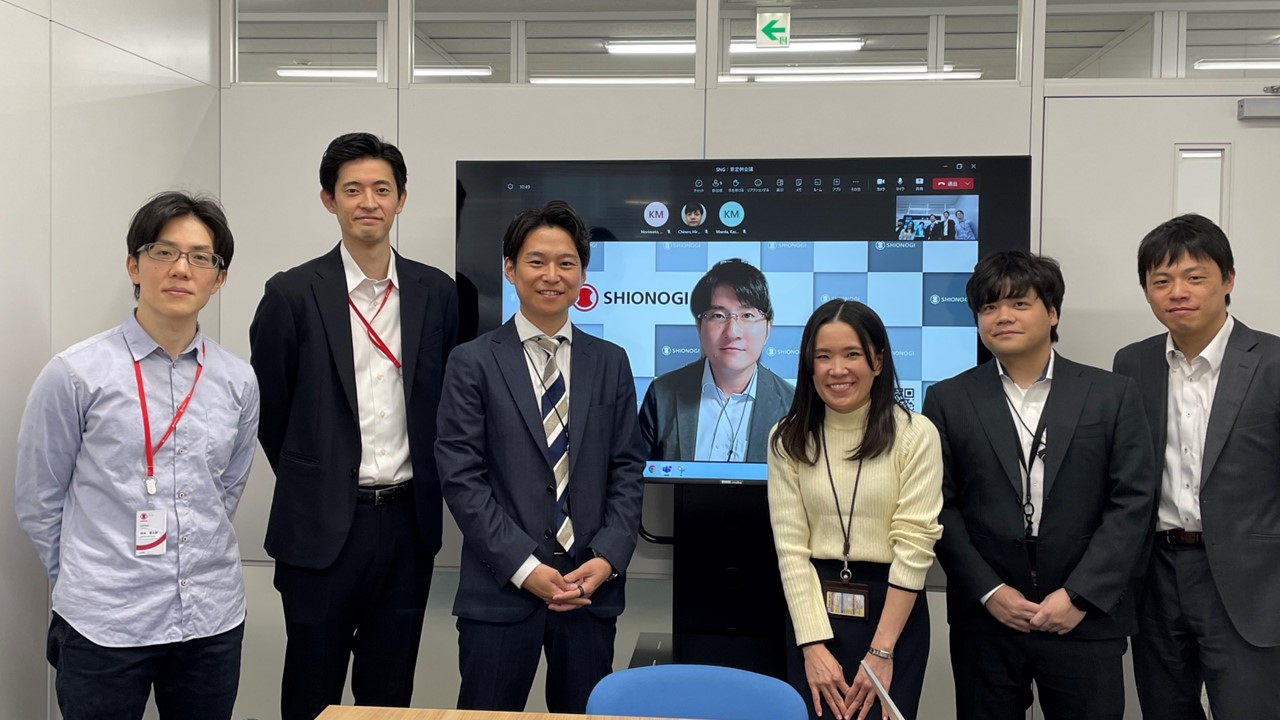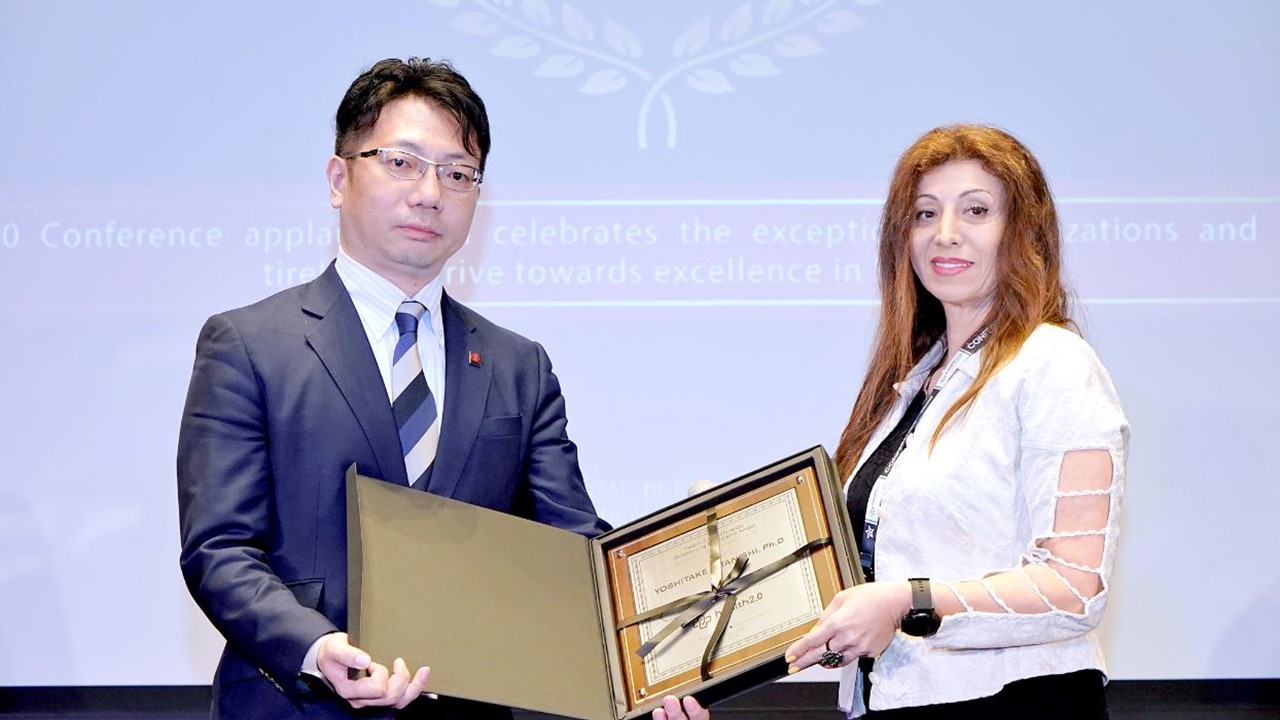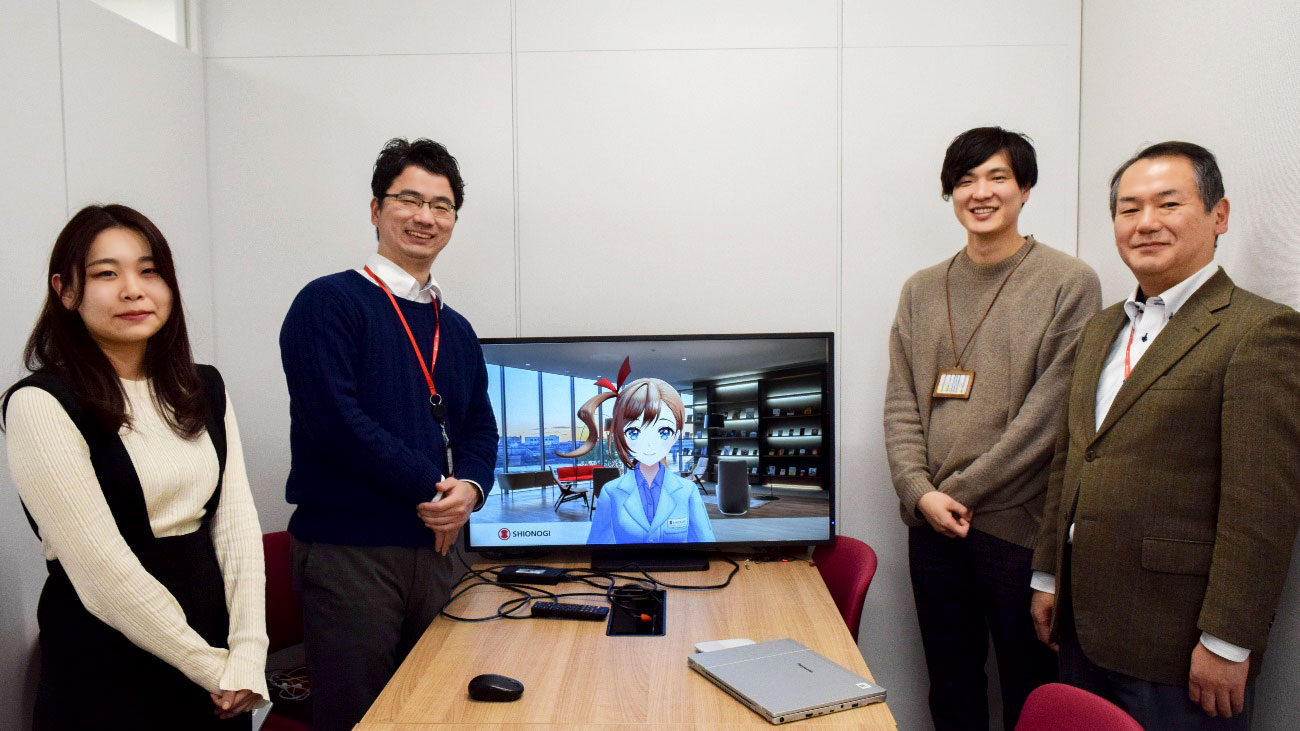SHIONOGI’s Commitment to Antibiotics: Aiming for an Ideal Collaboration between Industry, Government, and Academia to Tackle Infectious Diseases
In November 2023, an antimicrobial drug for drug-resistant infections developed by SHIONOGI was selected as the first drug under the Ministry of Health, Labour and Welfare’s new “Antimicrobial Preservation Support Project.”
Behind this noteworthy accomplishment was the pivotal role played by the External Affairs Department. In addition to internal endeavors, the department put out relentless effort in discussions with the pharmaceutical industry, government, and international bodies.
What has been the journey for the External Affairs Department, where do they stand now, and where are they aiming to go?
We discussed these questions with Yusuke Ariyoshi from the External Affairs Department, who as a member of SHIONOGI expressed a strong desire to contribute to society by developing cherished antimicrobial drugs.
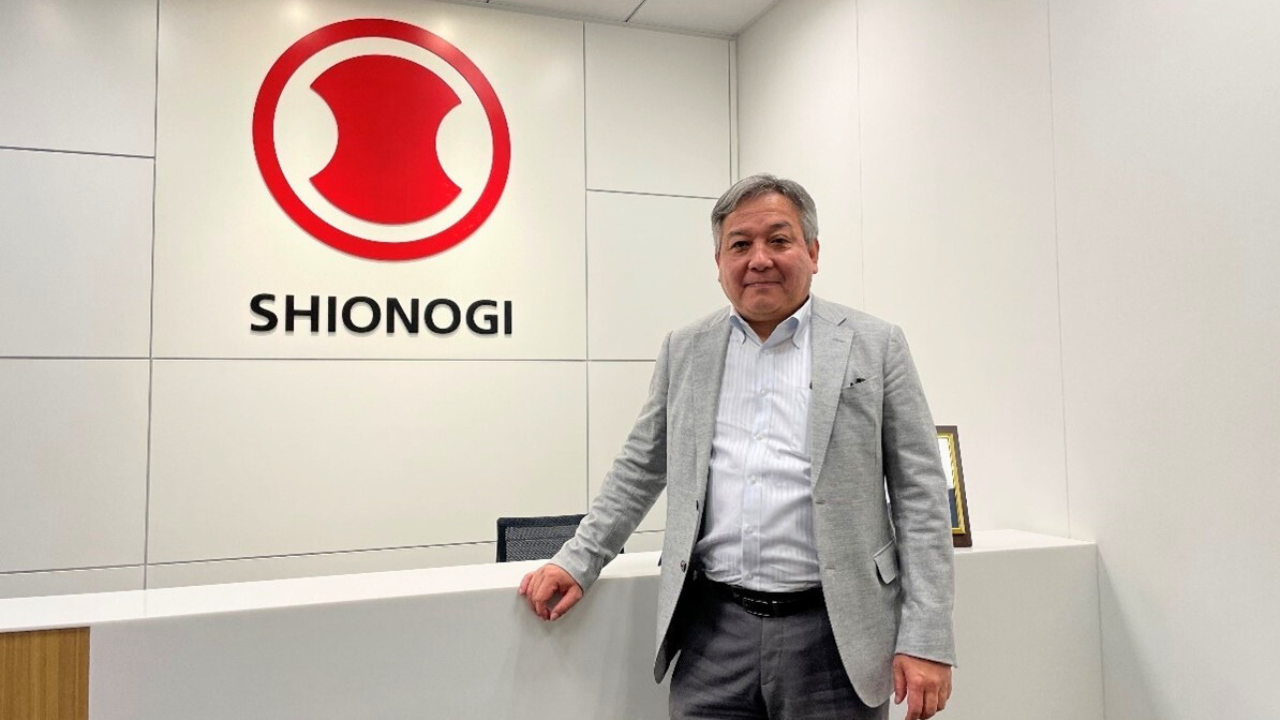
The Dilemma in Antibiotic Development: Pioneering New Possibilities
—Could you tell us more about the “Antimicrobial Preservation Support Project” for which SHIONOGI’s antibiotic was selected?
—How were you involved in the “Antimicrobial Preservation Support Project”?
—So, the role of the External Affairs Department goes beyond negotiations, setting the course for collaboration between the government and SHIONOGI toward a common goal, doesn’t it?
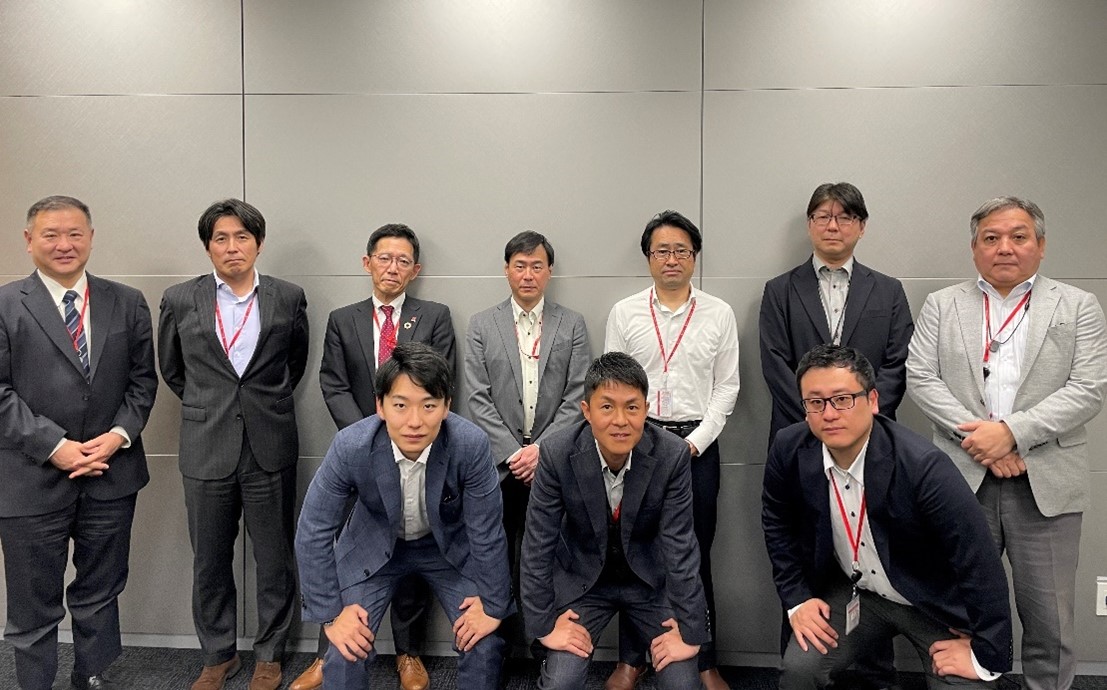
Surpassing Individual Limits Through Industry–Government–Academia Collaboration
—Are industry, government, and academia working together to address the issue of antimicrobial resistance (AMR), where existing antibiotics are becoming ineffective?
Absolutely. The capabilities of an individual or a single entity are limited. Therefore, companies, industry associations, government, academia, and medical professionals must unite and address this social challenge based on mutual trust.
Especially regarding AMR, considering the entry of resistant strains from abroad into Japan, rapid response via industry–government–academia collaboration is necessary.
—Is it important for the government to lead the efforts against AMR?
The government must take the lead in addressing AMR.
While working in the international division, I engaged in susceptibility testing and surveillance efforts in Southeast Asia. Although these were significant initiatives, they were “point” efforts and lacked a broader impact, which resulted in a sense of incompleteness. This experience highlighted the importance of government-led initiatives in creating a more significant impact.
Despite being a global threat, public awareness of AMR appears to be relatively low.
AMR, like climate change, is a global issue that remains under-recognized. Japan’s high hygiene standards might contribute to fewer AMR cases in comparison with other countries, which possibly affects public awareness.
Nevertheless, the increase in resistant strains and the resulting inefficacy of antibiotics could impact treatments for infections, cancer, and surgeries, which directly affect our daily lives and pose a significant threat. Hence, AMR must be understood and addressed.
—When compared with other countries, Japan has fewer resistant strains, right?
—What are your thoughts on the AMR issue?
AMR is a global challenge that requires national efforts. Raising awareness about AMR and advocating for necessary measures at the national level are critical.
Advocacy activities play a vital role in increasing understanding and interest in AMR, influencing national policies. The External Affairs Department’s role is to facilitate discussion with various stakeholders, including industry associations, academia, think tanks, and the media, to pave the way for addressing AMR.
The ultimate goal is to ensure the continuous development and appropriate global use of needed antibiotics, saving numerous lives. How close we are to achieving this vision remains to be seen.
—So, AMR is indeed a global issue.
Precisely. It has been nearly a decade since the “Global Action Plan” was adopted at the World Health Assembly in 2015 to address AMR. Nevertheless, the number of infections and deaths due to AMR is on the rise, indicating that achieving visible results will take time. Therefore, accelerating efforts in all aspects of AMR is crucial.
Particularly in developing countries, where the need for treatment is high, AMR measures must be enhanced. In the future, we hope to see and support initiatives led by the Japanese government for such countries.
Beyond Confronting AMR: Envisioning the Future
—Where do your motivation and passion come from?
They probably stem from the desire to save as many patients as possible. Thinking about the situations where antibiotics are used intensifies this desire.
Although everyone wants to be helpful to others, as a member of SHIONOGI, I have a strong attachment to antibiotics and constantly think about how I can contribute to society through them.
—Have you experienced moments of fulfillment or pride through your work?
I take pride in being able to unite with employees from SHIONOGI’s Japanese, American, and European branches; other pharmaceutical companies through the JPMA and IFPMA; and individuals from various governments and international organizations, all sharing a common goal in advocacy activities.
Observing the gradual implementation of pull incentives through collaboration on a global social issue has been deeply moving.
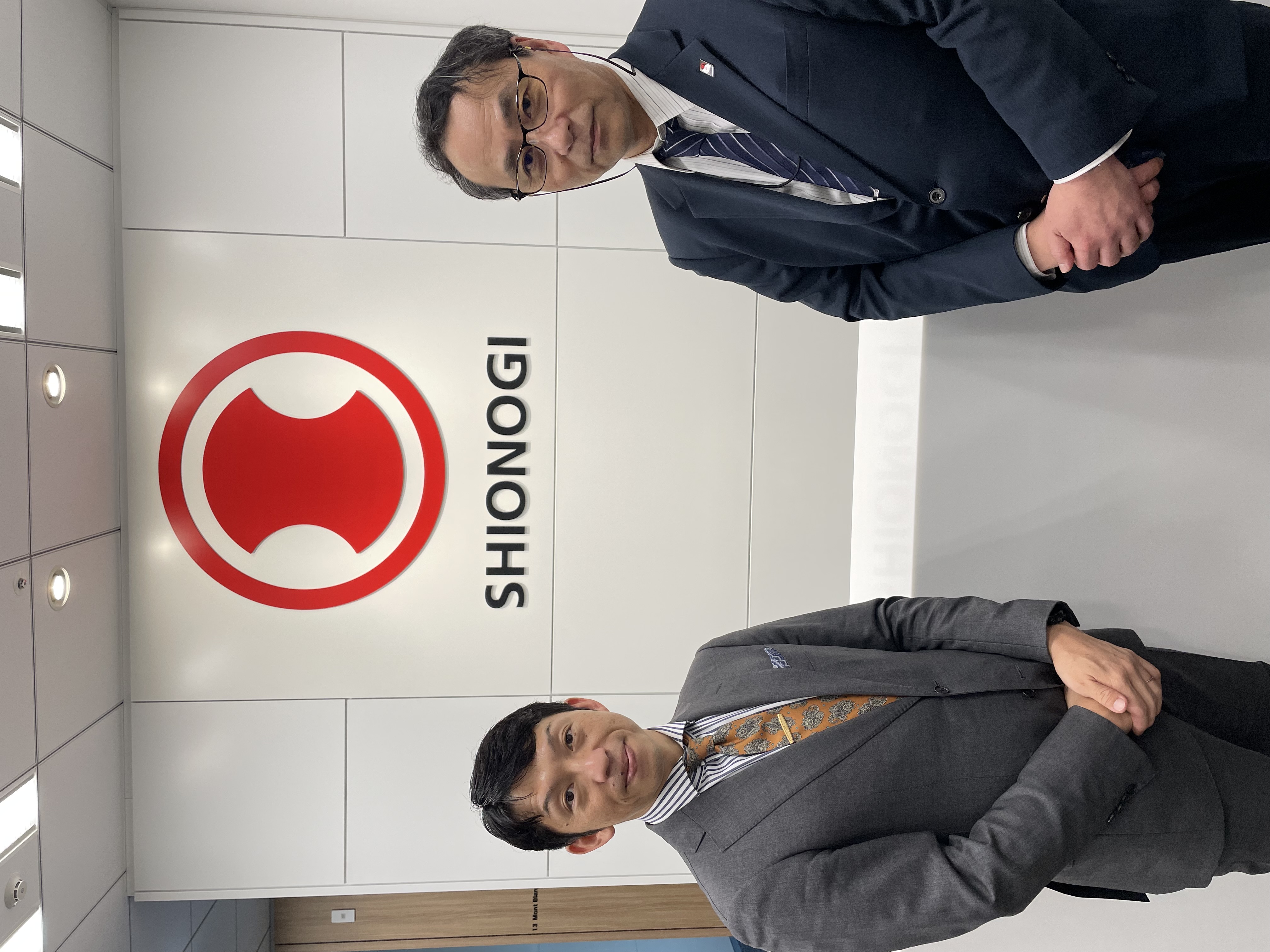
—What exactly are pull incentives?
Pull incentives refer to a support mechanism where the government guarantees a certain revenue amount for unused parts of antibiotics, encouraging companies to promote appropriate use and invest in developing new antibiotics, thereby enhancing predictability in business activities.
Unfortunately, this approach is currently limited to certain countries and regions and remains experimental; hence, it is not yet sufficient as support for new antibiotic development. However, pull incentives for antibiotics are still of their emerging phase, but they can significantly boost antibiotic development in the future.
—Finally, what are your goals moving forward with the External Affairs Department?
Addressing AMR involves various aspects, which include creating an environment for investing in new antibiotic development, enriching the antibiotic pipeline across multiple companies, and ensuring a supply of researchers engaged in antibiotic discovery. The list of tasks is infinite.
To tackle these challenges, we must steadily progress in all areas, including drug discovery, manufacturing, access, and appropriate use. Strengthening advocacy to increase social awareness and achieving systemic change are also goals we aspire to.
Instead of only hoping for future possibilities, we are determined to make a significant impact, ensuring SHIONOGI’s infectious disease medications reach not only Japan but also other countries in need.
*The information in this article is based on the time of the interview.


